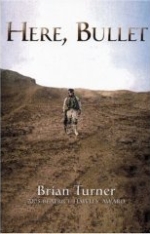Henry Reed also receives passing mention, along with fellow Second World War poets Alun Lewis and John Pudney. As part of the legacy of critics asking "Where are the war poets?", the article mentions an editorial from the August 8th, 1942 Times Literary Supplement: "Poets in War" (2MB .pdf). Of course, I looked it up:
POETS IN WAR
Where are the poets of the war? This question is often asked by those who remember that the last war threw up a fair amount of notable poetry. And that is true; for there were then living several highly skilled and experienced poets—Bridges, Kipling, Hardy, and there can be added Doughty, all of whom had something eloquent to say about the war or about aspects of it. But they, and others, were established writers; they viewed the war through the accumulated knowledge and wisdom of years; they were not soldiers, neither were they liable to be called up. Nor, when one thinks of it, have there ever been many poets of war who have been at the time of writing on active service, though the last war produced several poems by fighting men, like Julian Grenfell and Rupert Brooke, which are not likely to be forgotten. The fighting man, however, who writed about war is exceptional, and none too common is the soldier who sings of war years afterwards. Full of war as European poetry is, the singers of war have been for the most part not soldiers. Aeschylus, it is true, is said to have taken part in Salamis, and his narrative of that battle reads like participant's. Nearly all the epics are of war: and Homer's audience clearly delighted in it, but to the humane Virgil it was essentially a matter for sorrow and pity. Tyraeus, the Greek elegist, was certainly a warrior: and he appears to have seen war at too close quarters to glorify it.Also reviewed in this issue are Poems of This War: By Younger Poets (New York: Cambridge University Press, 1942), edited by Patricia Ledward and Colin Strang ("Songs of Emergency," p. 392), and volumes by Sidney Keyes, Alan Rook, Keidrich Rhys, and John Heath-Stubbs.
Thoughts such as these are almost inevitable when “Poems of this War,” reviewed on another page, invites attention. The contrast is great. For this anthology is not the work of old hands, exempt from the liability to serve, but of “the younger writers,” all presumably of military age, where, as some of them certainly are, actually serving, or not. The anthology then shows how the war affects the youngest generation of those who make poetry the vehicle of their thoughts. Or, to be cautious, how it affects particular representatives of that generation picked by particular editors. That they write with complete sincerity is not to be doubted; they say what they wish to say in their own language; and yet, as Mr. Blunden in his introduction implies, there is much that is traditional in war poets which is not to be found in them. There is “no militarism, or personal claim, or study of revenge.” This is a remarkable comment to make. Militarism is no doubt offensive even in professional soldiers, many of the best of whom have been free from it. Personal claims, again, may be sheer egoism. Revenge may be an injurious study. But is there no such thing as righteous indignation? May not a dear homeland be in imminent danger? That war is a foul way of living, that all things pleasant and legitimate are shattered by it, that soldiering, even in the best cause, may be at times and to some temperaments an unmitigated bore—all this is true; and there is a middle generation living which has been through it all. No doubt, however, war was to that generation more of a novelty than it is to the latest, which was born in its atmosphere and bred up in its aftermath.
These poems, Mr. Blunden tells us, have been written on the principle of the “innocent eye.” The mood of this volume is “seeing where the truth is.” So far, so good; but may not the eye in the innocence of youth miss things which older commentators, equally innocent, will have acquired the habit or the power of discerning? Can anything like the whole truth about so vast a subject, so ubiquitous a presence, as universal war, be revealed to any eye? The facts here are admittedly in various moods. Some of them are in the trenches or entering battle; others share the common danger of being bombed; others meditate on natural beauty, on love, on friendship, on death and life. They are quite candid. They are oppressed by the calamity which has befallen the world. In vain to remark that they are not old enough to look back on much in tranquility. Yet they must be taken for what they say and for what they do not say, as a symptom, because they express themselves without labour. To read them is to infer that, were there no war, they would still be poets, but poets compelled, like all too many children of this age, to think, observe, and write within a narrow living-space.
By coincidence, August 8th, 1942—the day this editorial appeared in the TLS—was the very day Reed's "Naming of Parts" was printed in The New Statesman and Nation.








